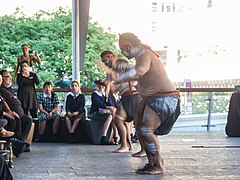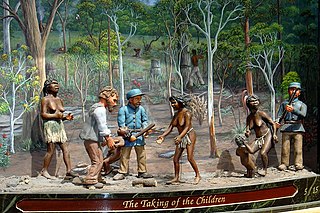
The Stolen Generations were the children of Australian Aboriginal and Torres Strait Islander descent who were removed from their families by the Australian federal and state government agencies and church missions, under acts of their respective parliaments. The removals of those referred to as "half-caste" children were conducted in the period between approximately 1905 and 1967, although in some places mixed-race children were still being taken into the 1970s.
Sir Ronald Darling Wilson, was a distinguished Australian lawyer, judge and social activist serving on the High Court of Australia between 1979 and 1989 and as the President of the Human Rights and Equal Opportunity Commission between 1990 and 1997.

Charles Wilson Tuckey is an Australian politician who was a member of the House of Representatives from 1980 to 2010, representing the seat of O'Connor in Western Australia for the Liberal Party. He was a minister in the Howard government.

The Canadian Indian residential school system was a network of boarding schools for Indigenous peoples. The network was funded by the Canadian government's Department of Indian Affairs and administered by various Christian churches. The school system was created to isolate Indigenous children from the influence of their own culture and religion in order to assimilate them into the dominant Euro-Canadian culture. Over the course of the system's more than hundred-year existence, around 150,000 children were placed in residential schools nationally. By the 1930s, about 30 percent of Indigenous children were attending residential schools. The number of school-related deaths remains unknown due to incomplete records. Estimates range from 3,200 to over 30,000, mostly from disease.

Lowitja O'Donoghue, also known as Lois O'Donoghue and Lois Smart, was an Australian public administrator and Indigenous rights advocate. She was the inaugural chairperson of the Aboriginal and Torres Strait Islander Commission (ATSIC) from 1990 to 1996. She is known for her work in improving the health and welfare of Indigenous Australians, and also for the part she played in the drafting of the Native Title Act 1993, which established native title in Australia.
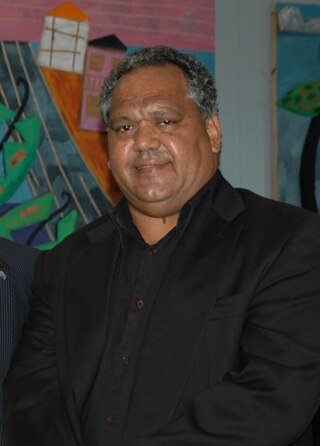
Noel Pearson is an Australian lawyer and founder of the Cape York Partnership, an organisation promoting the economic and social development of Cape York. He is also the Founder of Good to Great Schools Australia an organisation dedicated to lifting education outcomes for all Australian students.

A truth commission, also known as a truth and reconciliation commission or truth and justice commission, is an official body tasked with discovering and revealing past wrongdoing by a government, in the hope of resolving conflict left over from the past. Truth commissions are, under various names, occasionally set up by states emerging from periods of internal unrest, civil war, or dictatorship marked by human rights abuses. In both their truth-seeking and reconciling functions, truth commissions have political implications: they "constantly make choices when they define such basic objectives as truth, reconciliation, justice, memory, reparation, and recognition, and decide how these objectives should be met and whose needs should be served".
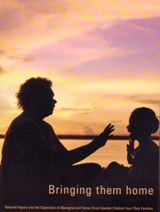
Bringing Them Home is the 1997 Australian Report of the National Inquiry into the Separation of Aboriginal and Torres Strait Islander Children from Their Families. The report marked a pivotal moment in the controversy that has come to be known as the Stolen Generations.

The Redfern Park Speech, also known as the Redfern speech or Redfern address, was made on 10 December 1992 by the then Australian Prime Minister, Paul Keating, at Redfern Park, which is in Redfern, New South Wales, an inner city suburb of Sydney. The speech dealt with the challenges faced by Indigenous Australians, both Aboriginal Australian and Torres Strait Islander peoples. It is still remembered as one of the most powerful speeches in Australian history, both for its rhetorical eloquence and for its ground-breaking admission of the negative impact of white settlement in Australia on its Indigenous peoples, culture and society, in the first acknowledgement by the Australian Government of the dispossession of its First Peoples. It has been described as "a defining moment in the nation's reconciliation with its Aboriginal and Torres Strait Islander people".
Indigenous Australians are people with familial heritage from, and/or recognised membership of, the various ethnic groups living within the territory of present day Australia prior to British colonisation. They consist of two distinct groups, which include many ethnic groups: the Aboriginal Australians of the mainland and many islands, including Tasmania, and the Torres Strait Islanders of the seas between Queensland and Papua New Guinea, located in Melanesia.

Lorna "Nanna Nungala" Fejo was a Warumungu woman who worked in Indigenous health in the Northern Territory of Australia, including the development of a program called "Strong women, Strong Babies and Strong Culture". As a member of the Stolen Generations, having been removed from her family as a young child, she was named by Prime Minister Kevin Rudd, in his historic Apology to the Stolen Generations on 13 February 2008.

Michael Alexander Mansell is a Tasmanian Aboriginal (Palawa) activist and lawyer who has campaigned for social, political and legal changes.

The first Rudd government was the executive Government of Australia formed by the Australian Labor Party (ALP) and led by Prime Minister Kevin Rudd. The Rudd government commenced on 3 December 2007, when Rudd was sworn in along with his ministry. This took place just nine days after the defeat of the Howard government, which was a Coalition of members of the Liberal and National parties, at the 2007 federal election. The Rudd government concluded on 24 June 2010 when Rudd, under pressure from an impending leadership caucus ballot, stepped down from the leadership of the ALP and was succeeded by his deputy, Julia Gillard. Rudd was re-elected leader of the Labor Party in 2013 and served a second term as prime minister.
The Motion of Reconciliation was a motion to the Australian Parliament introduced and passed on 26 August 1999. Drafted by Prime Minister John Howard in consultation with Aboriginal Senator Aden Ridgeway, it dedicated the Parliament to the "cause of reconciliation" and recognised historic maltreatment of Indigenous Australians as the "most blemished chapter" in Australian history. While falling short of an apology, the motion included a statement of regret for past injustices suffered by Indigenous Australians.
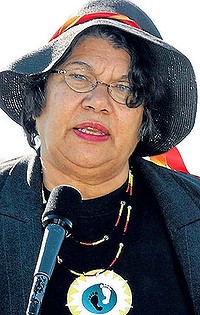
Ningali Cullen (1942–2012) was an Aboriginal activist and co-chair of the National Sorry Day Committee.

On 13 February 2008, the Parliament of Australia issued a formal apology to Indigenous Australians for forced removals of Australian Indigenous children from their families by Australian federal and state government agencies. The apology was delivered by Prime Minister Kevin Rudd, and is also referred to as the National Apology, or simply The Apology.
Close the Gap (CTG) is a social justice campaign focused on Indigenous Australians' health, in which peak Aboriginal and Torres Strait Islander and non-Indigenous health bodies, NGOs and human rights organisations work together to achieve health equality in Australia. The Campaign was launched in April 2007. National Close the Gap Day (NCTGD) has been held annually since 2009.
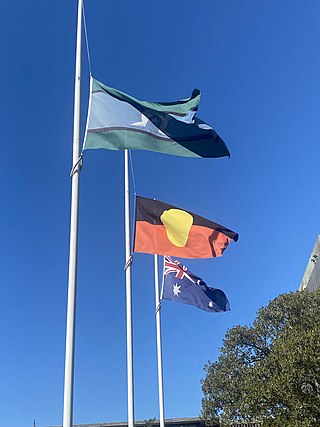
Reconciliation in Australia is a process which officially began in 1991, focused on the improvement of relations between the Aboriginal and Torres Strait Islander peoples of Australia and the rest of the population. The Council for Aboriginal Reconciliation (CAR), created by the government for a term of ten years, laid the foundations for the process, and created the peak body for implementation of reconciliation as a government policy, Reconciliation Australia, in 2001.
Melissa Brickell is an Indigenous Australian welfare worker based in Melbourne, Australia. She served as Director of Reconciliation Victoria and was the Chairperson for the Stolen Generations Sorry Day Committee and the Stolen Generations Alliance. She also served on the National Aboriginal and Torres Strait Islander Catholic Council and the National Aboriginal and Torres Strait Islander Ecumenical Commission.
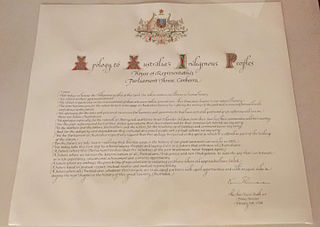
Apologies to Indigenous peoples refer to apologies extended by political leaders or representatives, acting on behalf of a political entity or nation, to acknowledge and express remorse for some historical wrong.
